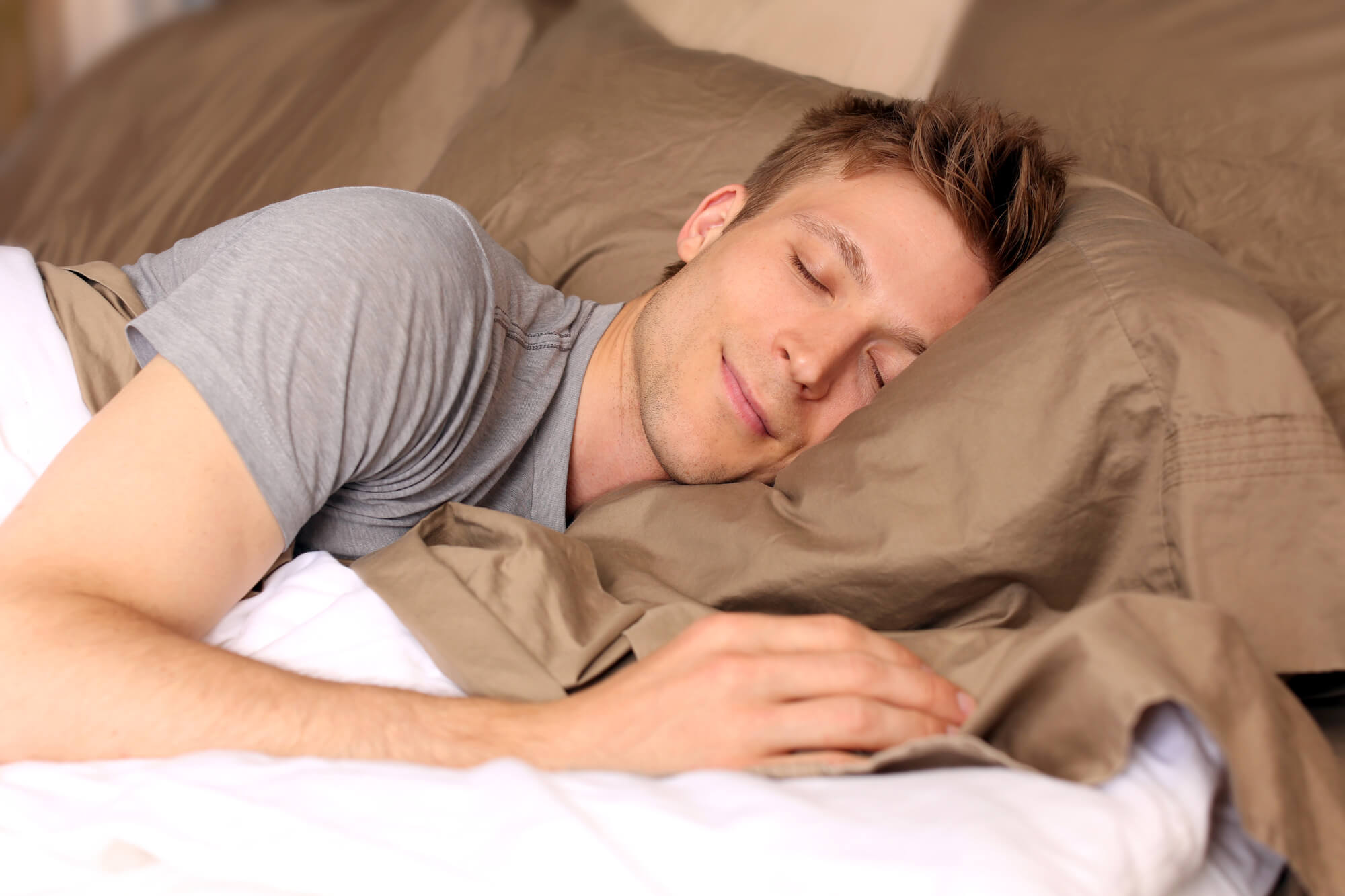It’s that time again. Bedtime. And once again you can’t sleep.
It’s 4 AM, and you’re staring at your ceiling. You already tried staring at your phone and computer screen, but nothing worked. You’re tired but you can’t sleep, and you have a big day tomorrow.
You have insomnia, and you’re not alone. Roughly 60 million Americans suffer from insomnia every year. Here are the causes of insomnia and some things to do when you can’t sleep.
Understanding Insomnia & Why You’re Tired But Can’t Sleep
Before we get into the causes of insomnia, it’s important to understand what insomnia is exactly. Insomnia is defined by the inability to fall and remain asleep, to the point that the individual doesn’t wake up feeling rested.
Symptoms include difficulty falling asleep, frequently waking up in the middle of the night, waking up too early in the morning, being tired through the day, having a hard time concentrating and irritability.
Insomnia can either be acute, meaning only lasting one to several nights or chronic where it can last from a month to years. Insomnia is the most common issue American’s face with sleep and is especially common with women.
Here are some things in your life that can be triggering your insomnia.
1. You’re Saving All Your Worrying For Bedtime
Does it always feel like the second your head hits the pillow, your mind starts racing? You can’t stop thinking about the things you forgot to do today and all the things you have to do tomorrow. This can affect your sleep.
Make a “to-do” list
Writing out a “to do” before you go to bed, can help empty your mind of worries and put things in perspective. You’ll also feel good knowing that you have a list now, and you can tackle that all tomorrow. Afterall, nothing is going to be accomplished by you worrying about it in bed.
Schedule “Worry Time” During the Day
It’s totally normal to freak out, but better for you if you schedule that during the day. Take about 15 minutes addressing your problems during the day so they don’t freak you out at night.
Journaling or talking it out with someone close to you can help put your mind at ease.
2. Your Bedroom is All Wrong
The set-up of your bedroom and bed plays a huge role in if you’re getting a good night’s sleep, and can be a cause of your insomnia.
You’re Using Your Bed Wrong
Beds are for sleeping and sex and nothing else. Do not do work in bed. This is a guaranteed way to mess up your sleep.
Your Room is a Mess
A messy room with piles of clothes everywhere, dirty glasses and dishes on your nightstand and just chaos everywhere can make it difficult to sleep. A tidy room means a tidy mind.
The Lighting
Your room should be dark. That window might be letting in too much light. Or that glow of your computer screen is keeping you up.
Keep the lighting in your room as dark as possible for the best rest. You might want to invest in thick blackout curtains because even the tiniest beam of light can keep you alert.
It also helps to dim the lights about 2 hours before sleep to help you get ready for bed. Or changing your bedroom lights to soft or warm varieties with a color temperature that less than 3,000 kelvins. This can help reduce the lights’ effect on our nervous systems.
The Temperature
Your room should be cool for the best sleep. Your room’s temperature should be between 60 and 65 degrees with 65 degrees being considered to be the best temperature to sleep in.
Choose the Right Mattress.
Is your mattress too firm or too soft? Uncomfortable bedding has been linked to bad sleep. A comfortable mattress that’s a good fit for you can help you get that much-needed shut-eye.
Minimize Disturbing Noises
There are some external noises that are out of your control like a busy street, your neighbor’s dog. You can cover these noises up with the hum of a bedside fan or a white noise machine.
Turn off the screens
The blue light that comes from our computer and phone screens simulates our bodies and makes it difficult to sleep. Reduce this light by turning off all electronic devices before going to bed
3. Your Daily Schedule Is Affecting Your Sleep Schedule
How you spend your day impacts how you sleep at night. Activities like late night exercises, getting up late, long naps and being indoors all day can make it hard to sleep at night. Here’s how to fix that.
Exercise Earlier
It’s been shown that working out can improve your sleep. You should try to work out at least three hours before you go to bed. This way you have enough time to nourish, hydrate, digest and wind down before crashing.
Know How to Nap
There’s power in power naps. All you need is a quick 10 to 20-minute refreshing nap during the day. Power naps can help us feel rested, boost creativity, and even help with memory.
Just try to avoid napping after 3:00 PM or 4:00 PM. Napping closer to bedtime will make it hard to fall asleep at a decent hour.
Explore the Great Outdoors
Do you spend most of your day inside? Either at home, in your car or at work? It’s time to get some fresh air!
Getting your fill of natural light and fresh air during the day helps your melatonin balance, which helps you sleep.
Don’t Try to Sleep Unless You’re Sleepy
Don’t rush into bed if you’re wide awake. Instead try some activities to help you wind down, especially after an active day, before you try to sleep.
Try out some gentle yoga, meditation, reading a book or listening to some soothing music.
If you’re trying to sleep and you can’t within 20 minutes, get out of bed, try a relaxing activity and try again.
Take a Hot Bath or Shower
Save your hot bath or shower until before bedtime. Getting out of the warm water into your now perfectly cool bedroom will make your body temperature drop slightly. A lowering body temperature can trigger sleep as it slows down metabolic activity.
4. You’re Eating the Wrong Things
What you eat throughout the day and before you go to bed at night, can be the reason why you can’t sleep. There are certain foods that help or hurt your sleep patterns.
Get Cheesy
You shouldn’t eat a big meal before bed. But you can have some dairy. Calcium like in milk and cheese is really good for inducing sleep.
Dairy is also rich in tryptophan which helps you fall asleep, as it helps reduce stress and stabilize nerve fibers in the brain.
Don’t Smoke
Like you need another reason to quit, here’s another one. It’s common for smokers to experience insomnia because their bodies go into nicotine withdrawal at night. This withdrawal can keep them restless.
Cut the Caffeine
This is kind of obvious. But having caffeine before bed or even later in the day can keep you up to the night.
Try limiting your caffeine intact to just one cup in the morning if possible. That way it’s pretty much out of your system by bedtime.
Feed Your Sleep
There are certain foods that have nutrients that can help your sleep. Like food that’s rich in magnesium which includes, halibut, almonds, cashews, and spinach.
You can also look for foods high in vitamin B. These foods are dark leafy green vegetables, nuts, and legumes.
You also can take supplements of taurine, vitamin B6, and magnesium, which have shown to help sleep and relaxation.
Don’t Eat a Large Meal Before Sleeping
Eating and crashing are never good because your body doesn’t have time to digest the food properly. This can lead to indigestion which is super painful and can keep you up all night.
Avoid That Nightcap
Contrary to popular belief, alcohol, which can make you calm and tired, actually isn’t good for a sound sleep. Booze actually disrupts your sleep cycles at night.
So after a night of drinking, you may pass out really quickly, you’re also likely to wake up in the middle of the night and not be able to go back to sleep.
Instead of that alcoholic nightcap, brew some chamomile tea. It’s been found that herbal tea can help reduce anxiety and get you into a better mental state before sleep.
5. Not Accepting You Need Help
One of the biggest causes of insomnia is not admitting you have insomnia.
Accept your insomnia for what it is. Instead of judging yourself for not being asleep, or comparing yourself to others who are sleeping soundly, be gentle with yourself. You may find that peace of mind will help you sleep after all.
And if that still doesn’t work, it might be time to ask for help.
Talk to Your Doctor
If you’ve tried everything and it’s not working. It might be time to consult a doctor. A doctor is a key to finding out if you have a sleep disorder or if there are any lifestyle factors or medications that are getting in the way.
There’s a chance you might be prescribed a sleeping medication. If you’ve tried everything else, you might need it.
Now, Go to Sleep
Hopefully, now you understand why you’re tired but can’t sleep. Now you understand your insomnia and how to fix it.
Devote time during the day to confront your stress instead of at night, make sure your room is in perfect sleeping condition, check that you’re doing the right activities during the day and before bedtime to help you sleep.
Feed your sleep with foods that are rich in relaxing nutrients and avoid stimulants, and if all else fails, call your doctor. Check out our blog for more information on how to get a good night’s sleep.


